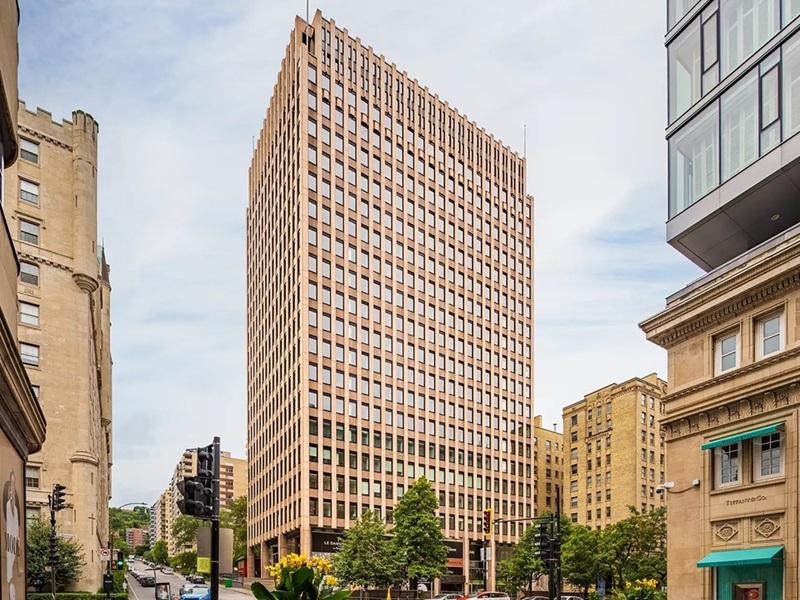Eight months into 2016, it is fair to characterize the year as tumultuous and transformational for Artis REIT.
 The Winnipeg-based diversified real estate asset holder has been busy buying, selling, keeping a wary eye on the Alberta wildfires and began what became a very public effort to sell a stake in its Calgary office portfolio.
The Winnipeg-based diversified real estate asset holder has been busy buying, selling, keeping a wary eye on the Alberta wildfires and began what became a very public effort to sell a stake in its Calgary office portfolio.
Don’t expect Artis to slow down any time soon, as it is determined to reduce its heavy dependence on the boom-bust Alberta market.
“We continue to diversify,” said president and CEO Armin Martens. “If you follow our history, back in 2008 and 2009, in the last recession – which thank goodness didn’t last that long – we were about 70% Alberta.”
Today, Alberta accounts for approximately 30% of the REIT’s portfolio mix and the long-term goal is to bring that down to as low as 20% as the trust expands its holdings primarily in the U.S.
“We will definitely watch the cycles of Calgary office,” said Martens. “I don’t mind Alberta industrial and retail long term but Calgary office does go into cycles and you have got to watch that exposure. We expect to be at least 40% in the U.S. and even hit 50%.”
(Information in the image is published on the Artis REIT website.)
U.S. best
Artis began the year with holdings in four U.S. markets (Houston, Phoenix, Denver and Minneapolis).
In the second quarter, it added a fifth market, Madison, Wisconsin, a secondary market with a population of about 700,000.
The company acquired 14 office properties in Madison for US$194 million in a city that Martens described as “the Austin of the north,” a reference to the liberal arts enclave of Austin Texas.
What does Madison have going for it? It’s a state capital, home to state’s university, both located in the city’s downtown, along with the city’s football and basketball teams and a fast growing IT employment hub. It’s also been overlooked by real estate rivals.
“You won’t see the big players, institutions or the REITs going to Madison,” Martens said in a recent conference call after the release of the second quarter financial results. “You’re not getting the same disruptive forces in that market that you would in Minneapolis or even in Winnipeg.”
Uncle Sam’s muscles
Artis is, quite simply, high on U.S. real estate. “I am really bullish on the U.S. dollar, it is the largest economy in the world, largest real estate market in the world, and now that they are energy self-sufficient that is a game changer.”
Martens, who earned an MBA in Lausanne, Switzerland, puts on his economist hat when he ticks off the positives of the U.S. driven by its energy renaissance. “Energy self-sufficiency is a boost to manufacturing, job creation, it shrinks their trade deficient because they are not importing that oil and gas, it puts negative pressure on interest rates, and again that is all good for real estate and good for the economy.”
Compare that to the REIT’s home market of Canada, where growth is more difficult to come by as development yields are not as robust as in the U.S. and acquisition cap rates are far less favourable.
Canada too
Artis is still a Canadian-heavy trust so there was news to report this month on its holdings north of the border.
The most pressing was the state of its portfolio in the Fort McMurray area. It’s eight retail properties in Fort McMurray suffered “minimal (if any) damage” from the wildfires and all its tenants have “appropriate insurance coverage.” As of August 4, 2016, 46 of Artis’ 52 tenants in Fort McMurray had re-opened for business.
In the quarter, Artis sold off three non-core properties for aggregate sale prices of $70.2 million and US$7.4 million. Those sales comprised the Tamarack Centre in Cranbrook, B.C. ($41.5 million), the Whistler Hilton Retail Plaza in Whistler, B.C. ($28.7 million) and the Crosstown North industrial property in the Twin Cities area of Minnesota.
Martens said the REIT has upped its forecast for divestitures in 2016 from an earlier estimate of $300 million to about $500 million, a combination of retail, industrial and office properties. “That will be redeployed, very likely, in U.S. markets,” he said.
Calgary office, the saga continues
That ambitious sales target does not include the possible sale of part of its Calgary office portfolio, which was the subject of rumours and news reports in January that it was attempting to sell some or all of its 20 office towers in that city.
“We ran a very quiet, confidential process that everybody found out about,” Martens joked. “I got emails from people on the day we launched it. It was a very quiet process.”
At the time the REIT was looking for equity partners who would be willing to take a 50% interest in its Calgary office portfolio with Artis staying on as the co-owner and property management.
The REIT is prepared to be patient. “The Calgary office market is kind of a `no fly zone’ for anybody buying real estate right now,” he said, noting that he is seeing “green shoots” in the province’s oil and gas industry.
He expects to secure some investment deals for its Calgary office by the end of this year or early next year.
“It is possible it will be broken up, right now I anticipate it will be broken up and I do expect around Christmas I will have some transaction done with some of the properties but not the whole portfolio.”







